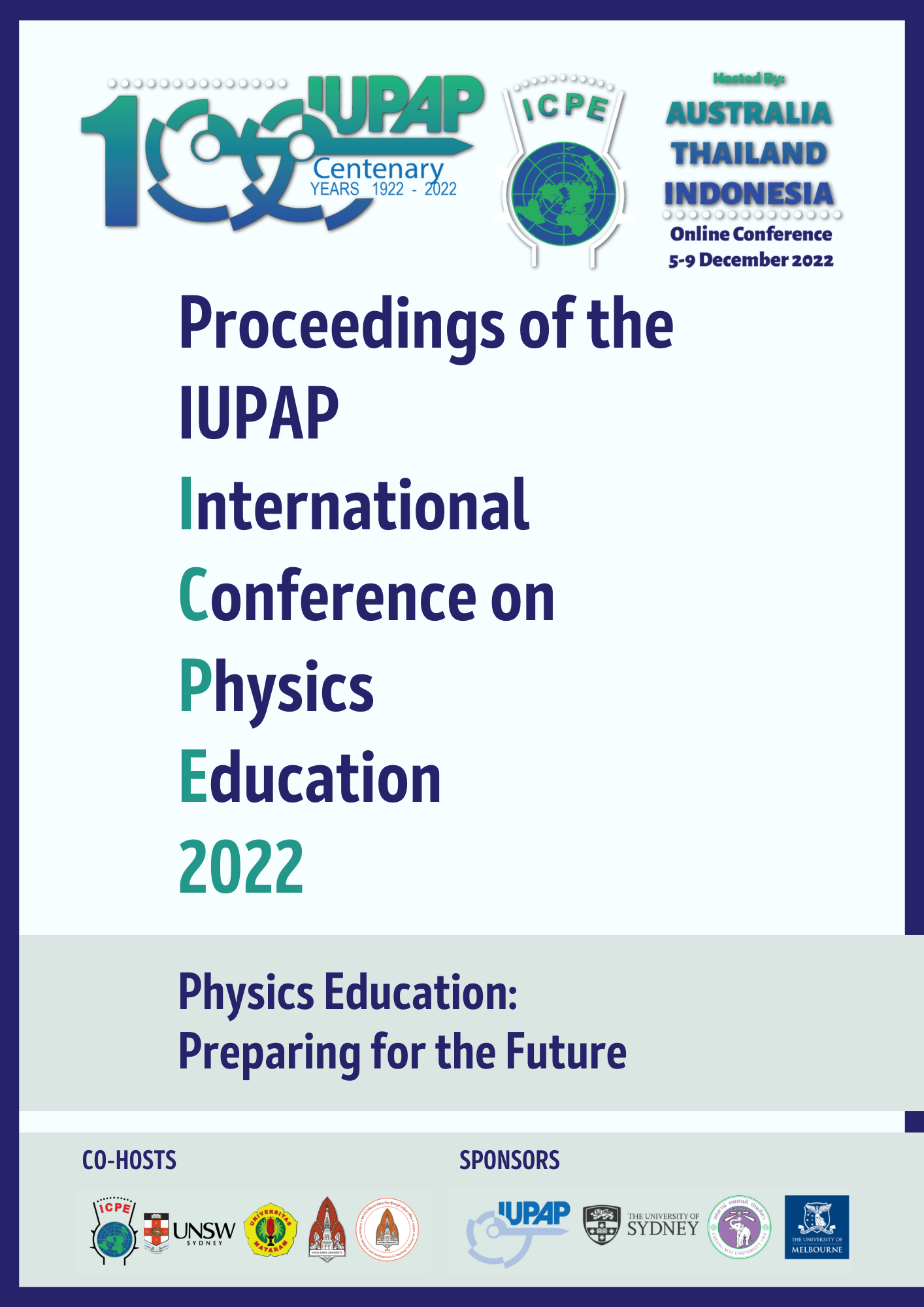An instrument to guide instructors of undergraduate experimental programs: A comment on findings from physics
Keywords:
undergraduate physics, laboratory program evaluation, motivation-hygiene theoryAbstract
Degree programs usually have a series of experimental activities, ranging from practicals, investigations, projects, to field work, forming a contained program often referred to as the ‘undergraduate experimental program’. The experimental program provides students with an understanding of the processes of science, contributes to student experiences and is relevant for mapping against graduate qualities – soft skills. While extant literature points to evaluations of individual experiments (Barrie et al., 2015; Yeung, Cornish, Kable, & Sharma, 2019), evaluations of complete experimental programs are rare. To this end, we have developed the ASELL Laboratory Program Evaluation (ALPE) survey for eliciting student experiences of undergraduate experimental programs. The ALPE was administered with 9790 students in 71 programs at 10 Australian universities, in five disciplines. Based on exploratory factor analysis, two factors emerged: the first factor included ALPE items relating to how the laboratory program influenced students’ science discipline knowledge and skills; the second factor included ALPE items related to how well the course contributed to development of general capabilities, such as items about “teamwork” and “ethics”.
Herzberg’s 1968 Two Factor Motivation-Hygiene theory originated in the organisational psychology sphere and has since been applied in various educational settings. The “motivation” factor refers to the elements of work that enhance a person’s satisfaction – associated with achievement and competency. The “hygiene” factor refers to the elements of work that include the provision of resources and support, such as supervision practices and procedures. In this presentation, we demonstrate how the “motivation-hygiene” theory applies to the two factors that emerged from the ALPE survey data, and how it can provide a meaningful framework for interpreting students’ perspectives of their undergraduate laboratory programs.
Finally, we comment on the findings from physics within this data set – of the five disciplines included in the large study of the ALPE survey, physics is a standout with lower correlations between individual items and overall laboratory program experience.
REFERENCES
Barrie, S. C., Bucat, R. B., Buntine, M. A., Burke da Silva, K., Crisp, G. T., George, A. V., Jamie, I. M., Kable, S. H., Lim, K. F., Pyke, S. M., Read, J. R., Sharma M. D., and Yeung A. A (2015) Development, Evaluation and Use of a Student Experience Survey in Undergraduate Science Laboratories: The Advancing Science by Enhancing Learning in the Laboratory Student Laboratory Learning Experience Survey. International Journal of Science Education, 37(11), 1795-1814.
Herzberg, F. (1968). "One More Time: How Do You Motivate Employees?". Harvard Business Review, 46(1), 53–62, OCLC 219963337.
Yeung, A., S. Cornish, S. Kable, and M. Sharma. (2019). "What can instructors focus on when improving undergraduate science experiments? Supporting a cross- disciplinary approach." International Journal of Innovation in Science and Mathematics Education, 27(3), 25-40.
Downloads
Published
Issue
Section
License
Authors who publish with the Proceedings of the International Conference on Physics Education 2022 agree to the following terms:
a) Authors retain copyright and grant the journal right of first publication with the work simultaneously licensed under a Creative Commons Attribution License (https://creativecommons.org/licenses/by/4.0/) that allows others to share the work with an acknowledgement of the work's authorship and initial publication in this journal.
b) Authors are able to enter into separate, additional contractual arrangements for the non-exclusive distribution of the journal's published version of the work (e.g., post it to an institutional repository or publish it in a book), with an acknowledgement of its initial publication in this journal.
c) Authors are permitted and encouraged to post their work online (e.g., in institutional repositories or on their website) prior to and during the submission process, as it can lead to productive exchanges, as well as earlier and greater citation of published work (See The Effect of Open Access - http://opcit.eprints.org/oacitation-biblio.html).
Privacy Statement The names and email addresses entered in the Proceedings of the International Conference on Physics Education 2022 site will be used exclusively for the stated purposes of this journal and will not be made available for any other purpose or to any other party.
